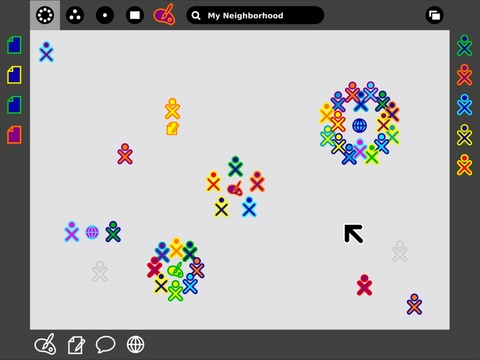Chowhound.com has been somewhat famous in the Toronto area, since Jim Leff‘s visit to Toronto was written up in the Toronto Star. I joined the community of diners dialoguing on restaurants in mid-2004, when I was working on consulting gig in the downtown core. The web interface was home-grown and quite ugly, but somehow functional. Chowhound was migrated to Cnet in late 2006, and there were some growing pains, as might be expected in migrating to new technologies.
I decided to give Chowhound another try yesterday. I had a visitor coming into town, and was searching for a restaurant that serves “beef 7 ways” (which translates to “Bo 7 Mon” in Vietnamese). Without good leads on Google, I wrote a posting on Chowhound’s “Ontario (including Toronto)” board titled “Beef 7 Ways, Vietnamese, in Toronto”. I described my quest, with a mention of an unnamed restaurant on Dundas Street where my wife and I had sampled the dish before — but are disinclined to revisit based on a cockroach crawling down the wall. On my feed reader, I can see that the entry was logged at 10:30 a.m.
Checking back during the day on chowhound.com, the entry was unanswered by 4 p.m., so I phoned around to three restaurants, and found that Golden Turtle (also known as Rua Vang) does serve Bo 7 Mon. Based on the web references, we tried out the modest restaurant, and our Finnish visitor enjoyed the meal.… Read more (in a new tab)
Chowhound.com has been somewhat famous in the Toronto area, since Jim Leff‘s visit to Toronto was written up in the Toronto Star. I joined the community of diners dialoguing on restaurants in mid-2004, when I was working on consulting gig in the downtown core. The web interface was home-grown and quite ugly, but somehow functional. Chowhound was migrated to Cnet in late 2006, and there were some growing pains, as might be expected in migrating to new technologies.
I decided to give Chowhound another try yesterday. I had a visitor coming into town, and was searching for a restaurant that serves “beef 7 ways” (which translates to “Bo 7 Mon” in Vietnamese). Without good leads on Google, I wrote a posting on Chowhound’s “Ontario (including Toronto)” board titled “Beef 7 Ways, Vietnamese, in Toronto”. I described my quest, with a mention of an unnamed restaurant on Dundas Street where my wife and I had sampled the dish before — but are disinclined to revisit based on a cockroach crawling down the wall. On my feed reader, I can see that the entry was logged at 10:30 a.m.
Checking back during the day on chowhound.com, the entry was unanswered by 4 p.m., so I phoned around to three restaurants, and found that Golden Turtle (also known as Rua Vang) does serve Bo 7 Mon. Based on the web references, we tried out the modest restaurant, and our Finnish visitor enjoyed the meal.… Read more (in a new tab)



